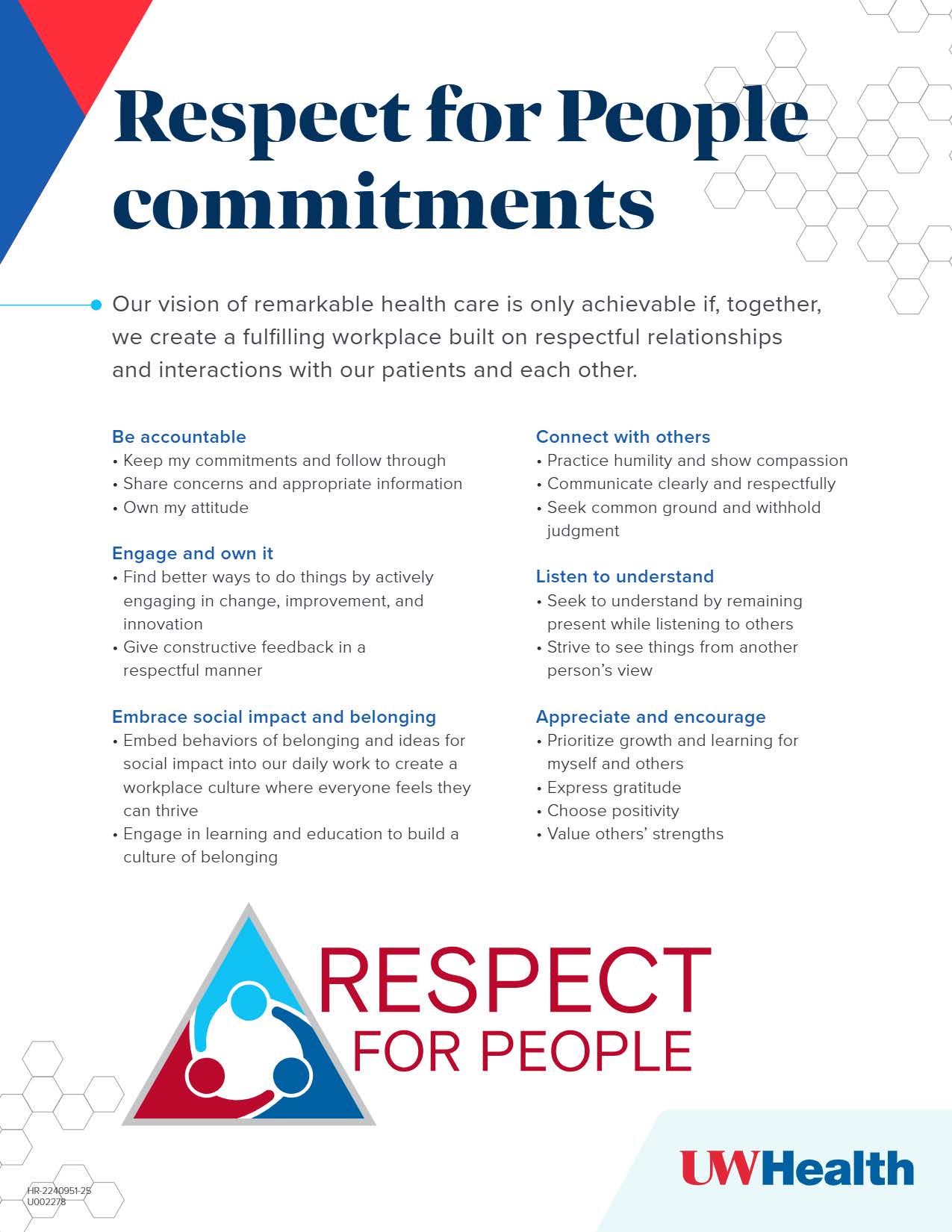Preparing for the interview
Consider and be ready to share how your experience relates to:
- Remarkable Health Care
It is important to familiarize yourself with our mission, vision and values and be able to share examples of how your experience, skills and/or knowledge align.
At UW Health, our commitment is to serve through medical innovation and unparalleled compassion. We provide expertise and quality care to patients and families throughout Wisconsin, northern Illinois and beyond.
- Social Impact and Belonging: Our vision is to be a health system that creates belonging for everyone. To fulfill our vision, we are working to achieve three primary goals:
- Create a culture of belonging so all team members feel valued and respected
- Ensure patients have access to remarkable health care that is respectful of each individual’s experience and needs
- Improve health outcomes for all our communities through social impact
- Respect for People is the foundation for the way we work and interact with others. Known as “R4P” internally, these commitments serve as critical building blocks for two foundational competencies of our Strategic Plan: Staff and Physician Wellbeing and Social Impact and Belonging.

Be prepared to share your areas of strength (how you shine) and areas for improvement (opportunities for growth). This demonstrates self-awareness and an openness for continuous growth.
We have provided resources related to the types of questions you can anticipate being asked during the interview.
Behavior-based interview questions
- Recruiters and hiring managers will ask behavioral interview questions to assess how you handled specific situations in the past and determine your behavior in similar situations.
- Behavioral interview questions assess your actions and reactions in a specific professional setting or situation. These questions usually begin with phrases such as, “Tell me about a time when …” or “Give me an example of …” and often relate to key competencies or skills required for the job.
- Behavioral interview questions give you the opportunity to share more in-depth information about your skills and qualities, such as problem-solving, customer service, critical thinking and communication. You can structure your answers to these questions using the STAR method, which includes the following components:
Situation: Describe a situation in your work experience pertinent to the question
Task: Explain what your task was in that situation
Action: Detail the action you took to address the situation
Result: Summarize the outcome of your response
Situational-based interview questions
- Situational interview questions focus on how you will handle real-life scenarios you might encounter in the workplace. Typically, these are hypothetical scenarios or future behavior expectations inquiries. Examples of situational based questions are “How would you handle …” or “What should you do when …”
- Asking these questions helps employers better understand your thought process and assess your problem-solving, self-management and communication skills.
- They also give you a chance to highlight how you use your professional experience, abilities and personal strengths to overcome challenges and meet goals.
